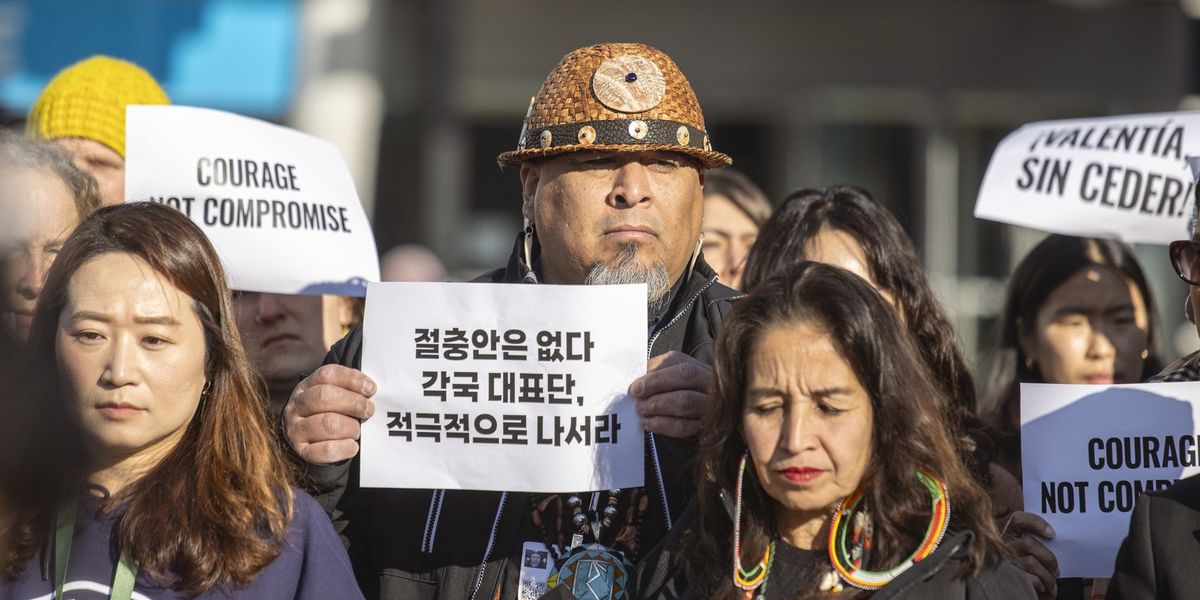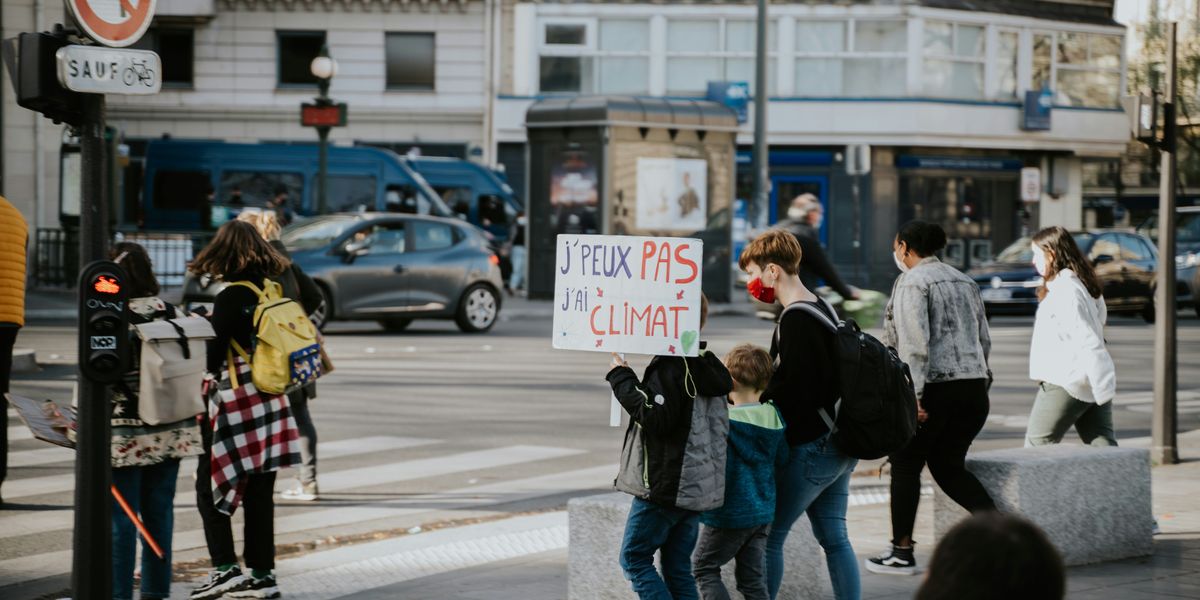election
Biden's green energy policies are expected to save lives and grow jobs, reports show
New reports suggest that President Biden's climate policies will save 200,000 lives by reducing pollution and have already added nearly 150,000 clean energy jobs in the U.S.
In short:
- Biden’s Inflation Reduction Act has led to 150,000 new clean energy jobs, with 3.5 million now working in the sector.
- Clean energy jobs grew 4.5% last year, outpacing U.S. employment growth, especially in energy efficiency, renewables, and electric vehicles.
- Trump's campaign promises to end clean energy incentives if elected, aiming to deregulate the energy sector.
Key quote:
"The biggest threats to this unprecedented progress are misguided efforts to repeal or roll back parts of the IRA."
— Bob O'Keefe, executive director of E2.
Why this matters:
Reducing pollution saves lives and improves public health. Clean energy job growth boosts the economy but faces potential reversal if Trump wins, risking pollution increases and economic setbacks in this sector.
State climate plans could face major changes if Trump returns to the White House
As states implement ambitious climate projects with federal funding, many are concerned that a Trump victory in the upcoming election could reverse much of their progress.
In short:
- States like Pennsylvania, North Carolina, and Utah are investing federal funds to reduce emissions and combat climate change, but fear that Trump could slow these efforts.
- While Trump cannot directly repeal the Inflation Reduction Act, he could delay grants, tax credits, and loans essential for climate projects.
- Republican-led states, despite prior resistance, are also using federal money to develop their climate initiatives.
Key quote:
“Even if the money is technically safe, we would definitely expect to see agencies [in a Trump administration] dragging their feet.”
— Rachel Jacobson, lead researcher of state climate policy at the Center on Budget and Policy Priorities
Why this matters:
The Inflation Reduction Act’s funding has empowered states to make critical investments in green technology and infrastructure. If these projects are delayed or defunded, it could stall progress on climate change and affect economic development in both red and blue states.
Related:
Harris links climate action to American values as part of presidential push
Vice President Kamala Harris is reframing climate action as a patriotic duty, a strategy researchers say could boost support across political divides.
In short:
- A New York University study suggests that presenting climate action as part of preserving the American way of life can sway opinions across political lines.
- The study, involving nearly 60,000 people, showed patriotic language increased belief in climate change and support for environmental policies among Americans.
- Experts caution that using patriotism in this context could backfire if perceived as insincere or manipulative.
Key quote:
“It’s encouraging to see politicians adopting this type of language.”
— Katherine Mason, psychology researcher, New York University
Why this matters:
Framing climate action as a defense of American values may bridge divides and garner broader support for critical environmental policies. However, the strategy’s effectiveness hinges on authenticity, as it risks alienating some audiences if mishandled.
Related EHN coverage:
Harris shifts stance, backs domestic oil expansion amid fracking debate
Vice President Kamala Harris supported U.S. oil production during the presidential debate, highlighting a shift from her earlier stance on fracking and appealing to moderate voters.
In short:
- Harris emphasized the need to reduce foreign oil dependence while promoting record domestic production.
- Her remarks signal a shift in rhetoric from her past opposition to fracking, reflecting political realities in swing states like Pennsylvania.
- Younger climate activists criticized her position as a missed opportunity to differentiate herself from Donald Trump on energy policy.
Key quote:
“We have invested over a trillion dollars in a clean energy economy, while we have also increased domestic gas production to historic levels.”
— Kamala Harris, Vice President
Why this matters:
Harris’s support for oil production signals a pragmatic approach to win swing state votes but risks alienating young climate advocates. Balancing energy independence and climate action remains a key challenge for her campaign.
Harris stays vague on her energy policies ahead of the election
Kamala Harris, the Democratic presidential nominee, supports clean energy and reducing emissions but has avoided taking detailed positions on energy issues with two months left in the race.
In short:
- Harris supports cutting pollution and clean energy investments but has not endorsed specific proposals like a drilling phaseout or a faster shift to 100% clean electricity.
- Environmentalists are divided on whether her broad statements on climate change will mobilize voters, especially among the younger generation.
- The fossil fuel industry seeks more clarity from Harris, urging her to define her stance on energy security and inflation.
Key quote:
“We want to be able to sell that to our base. We want to be able to push for the climate agenda that we know that we need.”
— Collin Rees, campaign manager at Oil Change U.S.
Why this matters:
Harris’ general approach on energy could influence key voter blocs. Her reluctance to dive into detailed policies risks alienating both climate advocates and younger voters, a demographic critical for Democratic success.
Additional coverage:
Biden may leave several environmental and health regulations unfinished
Key Biden administration regulations on worker protections, toxic chemicals and climate change remain unfinished, and their future will likely depend on the outcome of the 2024 election.
In short:
- Worker heat protection rules, proposed to safeguard employees during extreme temperatures, are unlikely to be completed before Biden leaves office.
- A key rule to limit gas plant emissions remains incomplete, with further regulations postponed to a future administration.
- Restrictions on PFAS, toxic "forever chemicals," remain in development, though a proposed rule has yet to surface.
Key quote:
"We are talking about a very real danger, and workers are suffering and without any kind of federal protection — that puts a lot of workers in danger."
— Juley Fulcher, worker health and safety advocate at the group Public Citizen
Why this matters:
Unfinished regulations on climate and health protections could be shelved or undone by a future administration. As extreme heat and toxic chemical exposure worsen, delayed actions may lead to greater environmental and public health risks.
Read more: Biden's climate push intensifies as elections near
Australia weighs delay on 2035 climate goals amid US election uncertainty
Australia may postpone its 2035 climate target announcement until after its election, citing uncertainty around the U.S. election outcome.
In short:
- Australia may miss its February 2025 deadline to announce its 2035 climate target, awaiting the US election results.
- A report suggests Australia could cut emissions by 65%-75% by 2035, but the government awaits further recommendations.
- Th U.S. election outcome could heavily influence global climate policy.
Key quote:
“A Harris presidency would likely see the U.S. continue to exert pressure on all countries, including Australia, to set a strong 2035 target as soon as possible.”
— Erwin Jackson, director of policy, Investor Group on Climate Change
Why this matters:
Delaying climate goals can slow global progress toward reducing emissions. The US election outcome may impact how aggressively other countries act to combat climate change.
More: Fuel emissions debate fuels Australia's climate conversation



















